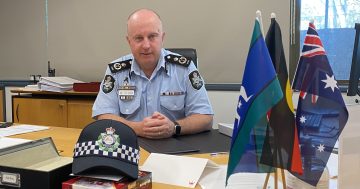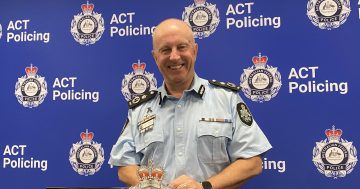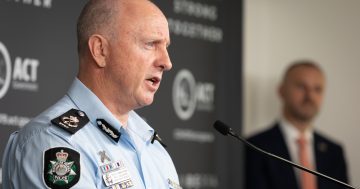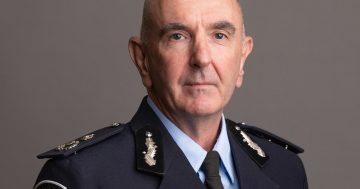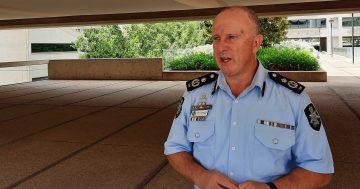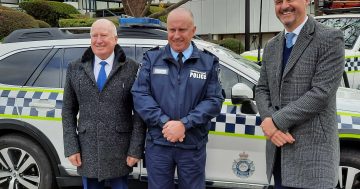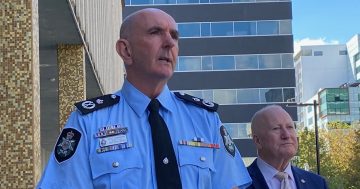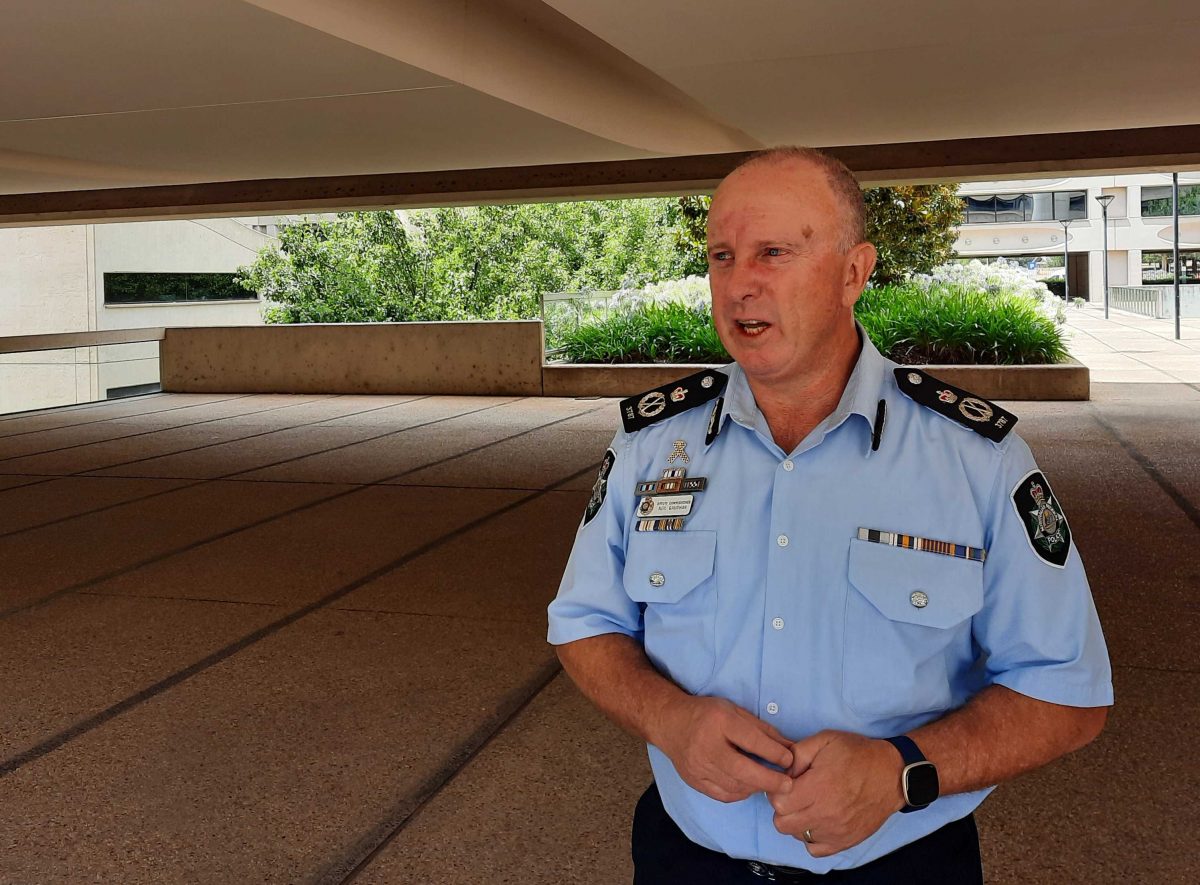
Chief Police Officer Deputy Commissioner Neil Gaughan: “We’ve actually gone backwards. We need to do something about that.” Photo: Ian Bushnell.
The ACT’s top police officer says the Territory is at a tipping point when it comes to the number of police required to maintain safety and order.
Chief Police Officer Deputy Commissioner Neil Gaughan was responding to the latest Report on Government Services showing the ACT had the lowest number of sworn officers per 100,000 people in the nation and that the Territory also spent the least per capita on police services.
It’s not the first time Deputy Commissioner Gaughan has questioned the resources at his disposal, but the ROGS figures add urgency to the issue.
He said 205 sworn police officers per 100,000 was well below the national average of 280.
While the ACT might not need that many more officers, the figures show that police numbers had clearly not kept pace with the Territory’s growing population.
“We’re not meeting our priority one and priority two targets. We haven’t been beating them for a number of financial years,” he said.
“In the last 10 years, the population of the ACT has grown 19 per cent. Police numbers in raw data have gone down by 0.7 per cent. So we’ve actually gone backwards with small numbers. We need to do something about that.”
Deputy Commissioner Gaughan warned that Canberra was no longer a Sleepy Hollow and was experiencing crime in all areas, including across the border in Queanbeyan where there were now 60,000 people.
“That area is growing as quick as we are, about 20 per cent per annum. Queanbeyan has a brand new police station. We don’t,” he said.
He said falling crime rates were not the whole picture, outlining a more complex policing environment with more suicides, domestic violence and mental health issues that were taking a toll on his officers.
“They’re not taking as much sleep as they should, they’re doing more overtime than they should, and there’s more unexplained absences,” Deputy Commissioner Gaughan said.
“So what I’ve now also got is a workforce that is clearly suffering.”
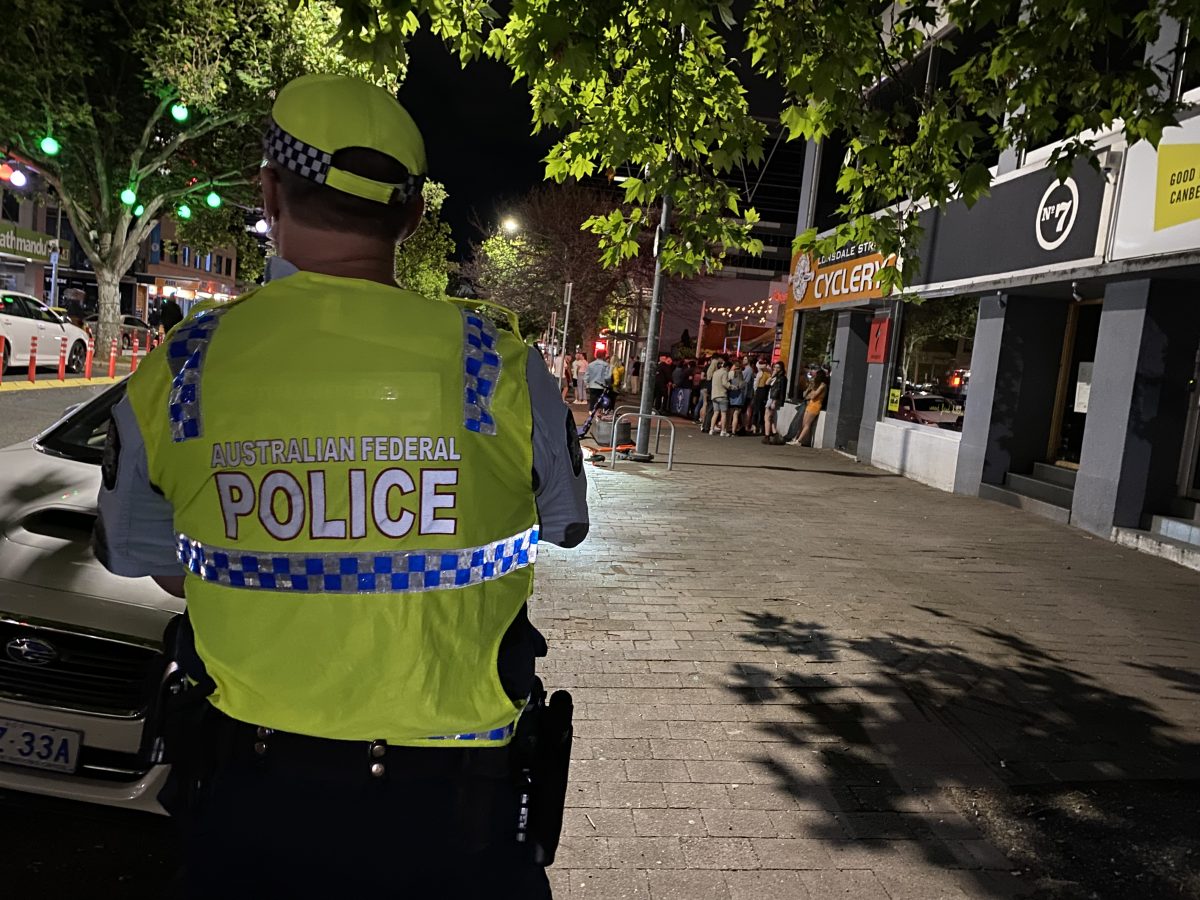
Police on the beat in Braddon in December as part of Operation Midnight. Photo: Claire Fenwicke.
Deputy Commissioner Gaughan also wants to see more money spent on equipment and facilities, including computers in every police car.
“The city police station was built in 1966. It’s almost as old as me,” he said.
There needed to be a conversation about what level of service the Canberra community wants from its police force, he said.
“What the Canberra community tell me regularly is that police do a great job when they get there, but they don’t see enough police in the new areas like the Molonglo Valley, which are growing rapidly,” Deputy Commissioner Neil Gaughan said.
He had a compelling business case to put to the ACT Government, bolstered by a new report from PWC that should go to the AFP Commissioner tomorrow but would not reveal just how many officers he has in mind, although not as many as the 350 the AFP Association has called for.
The ACT Government purchases police services from the AFP.
Police Minister Mick Gentleman said the ROGS data also showed that Canberrans had some of the highest perceptions of safety at home and in public places.
“The ACT has low crime rates compared to other jurisdictions, with an 11 per cent decrease in the number of offences reported to police in the last decade,” Mr Gentleman said.
He said the government had already significantly boosted funding as part of a phased transformation of ACT Policing that will enable more police on the street and boost police numbers.
“The workforce continues to grow and welcome new members with 42 recruits joining in the last year,” he said.
“Record investment through phase one [of the reforms] has delivered an additional 60 staff and has enabled more police to be on the streets.”
Mr Gentleman said the ACT was a unique jurisdiction where resources could be more easily moved around, but the government would continue to review resourcing ACT Policing as the Territory grew.
Opposition police spokesperson Jeremy Hanson called for a full review of the crime and justice system in the ACT to give the police the resources they needed to keep the community safe.
“After a year of tragic incidents and desperate calls from the police for more support, the latest statistics show deliberate government defunding that is the root cause of many of the problems,” Mr Hanson said.
“Last year, the ACT was the only jurisdiction in Australia to record a negative average annual growth rate in real recurrent expenditure from 2016-17 to 2020-21. There are fewer sworn officers in the ACT now than 10 years ago, despite having a substantial increase in population.”
Everybody was calling for more police in the ACT except the ACT Government, he said.
Mr Hanson also repeated criticism of the courts, particularly conviction rates and bail decisions.












